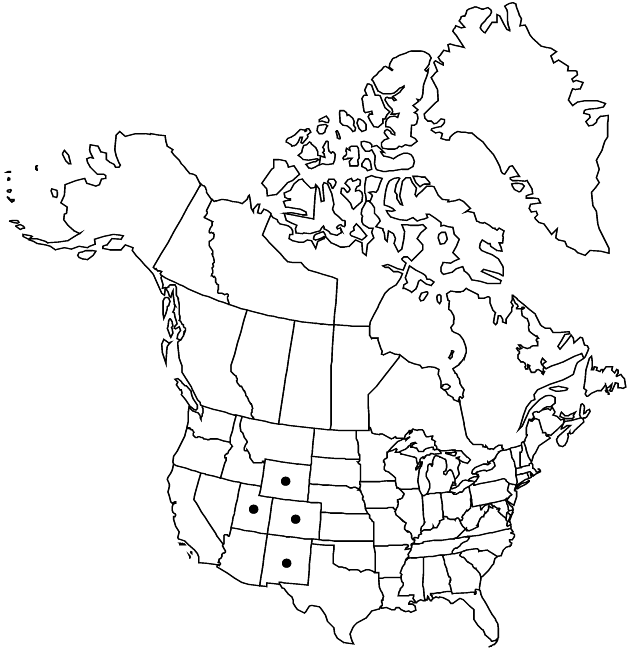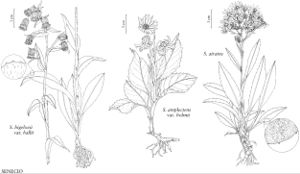Difference between revisions of "Senecio atratus"
Pittonia 3: 105. 1896.
FNA>Volume Importer |
imported>Volume Importer |
||
| (5 intermediate revisions by 2 users not shown) | |||
| Line 6: | Line 6: | ||
|place=3: 105. 1896 | |place=3: 105. 1896 | ||
|year=1896 | |year=1896 | ||
| + | }} | ||
| + | |special_status={{Treatment/ID/Special_status | ||
| + | |code=F | ||
| + | |label=Illustrated | ||
| + | }}{{Treatment/ID/Special_status | ||
| + | |code=E | ||
| + | |label=Endemic | ||
}} | }} | ||
|basionyms= | |basionyms= | ||
| Line 11: | Line 18: | ||
|name=Senecio atratus var. milleflorus | |name=Senecio atratus var. milleflorus | ||
|authority=(Greene) Greenman | |authority=(Greene) Greenman | ||
| + | |rank=variety | ||
}} {{Treatment/ID/Synonym | }} {{Treatment/ID/Synonym | ||
|name=Senecio milleflorus | |name=Senecio milleflorus | ||
| − | |authority= | + | |authority= |
| + | |rank=species | ||
}} | }} | ||
|hierarchy=Asteraceae;Asteraceae tribe Senecioneae;Senecio;Senecio atratus | |hierarchy=Asteraceae;Asteraceae tribe Senecioneae;Senecio;Senecio atratus | ||
| Line 37: | Line 46: | ||
-->{{#Taxon: | -->{{#Taxon: | ||
name=Senecio atratus | name=Senecio atratus | ||
| − | |||
|authority=Greene | |authority=Greene | ||
|rank=species | |rank=species | ||
| Line 51: | Line 59: | ||
|publication title=Pittonia | |publication title=Pittonia | ||
|publication year=1896 | |publication year=1896 | ||
| − | |special status= | + | |special status=Illustrated;Endemic |
| − | |source xml=https:// | + | |source xml=https://bitbucket.org/aafc-mbb/fna-data-curation/src/2e0870ddd59836b60bcf96646a41e87ea5a5943a/coarse_grained_fna_xml/V19-20-21/V20_1223.xml |
|tribe=Asteraceae tribe Senecioneae | |tribe=Asteraceae tribe Senecioneae | ||
|genus=Senecio | |genus=Senecio | ||
Latest revision as of 19:59, 5 November 2020
Perennials, (20–)35–70(–80+) cm (rhizomes or caudices branched, erect to weakly creeping). Herbage floccose-tomentose to canescent, sometimes unevenly glabrescent. Stems 1–(2–5). Leaves progressively reduced distally; petiolate; blades oblong-ovate to oblanceolate, (5–)10–30 × 1.5–4(–6) cm, bases tapered, margins dentate (denticles, dark, callous; mid leaves similar, sessile, smaller; distal leaves bractlike). Heads 20–60+ in corymbiform or subpaniculiform arrays. Calyculi of 2–5 linear bractlets (lengths to 1/3 phyllaries). Phyllaries (± 5) ± 8, 6–8 mm, tips black. Ray florets (± 3) ± 5; corolla laminae 5–8 mm. Cypselae glabrous. 2n = 40. (A report of 2n = 46 is presumably erroneous.)
Phenology: Flowering late spring–early fall.
Habitat: Dry or drying, rocky or sandy sites in coniferous areas, especially sites with frequent disturbance
Elevation: 2800–4000 m
Distribution

Colo., N.Mex., Utah, Wyo.
Discussion
Selected References
None.
